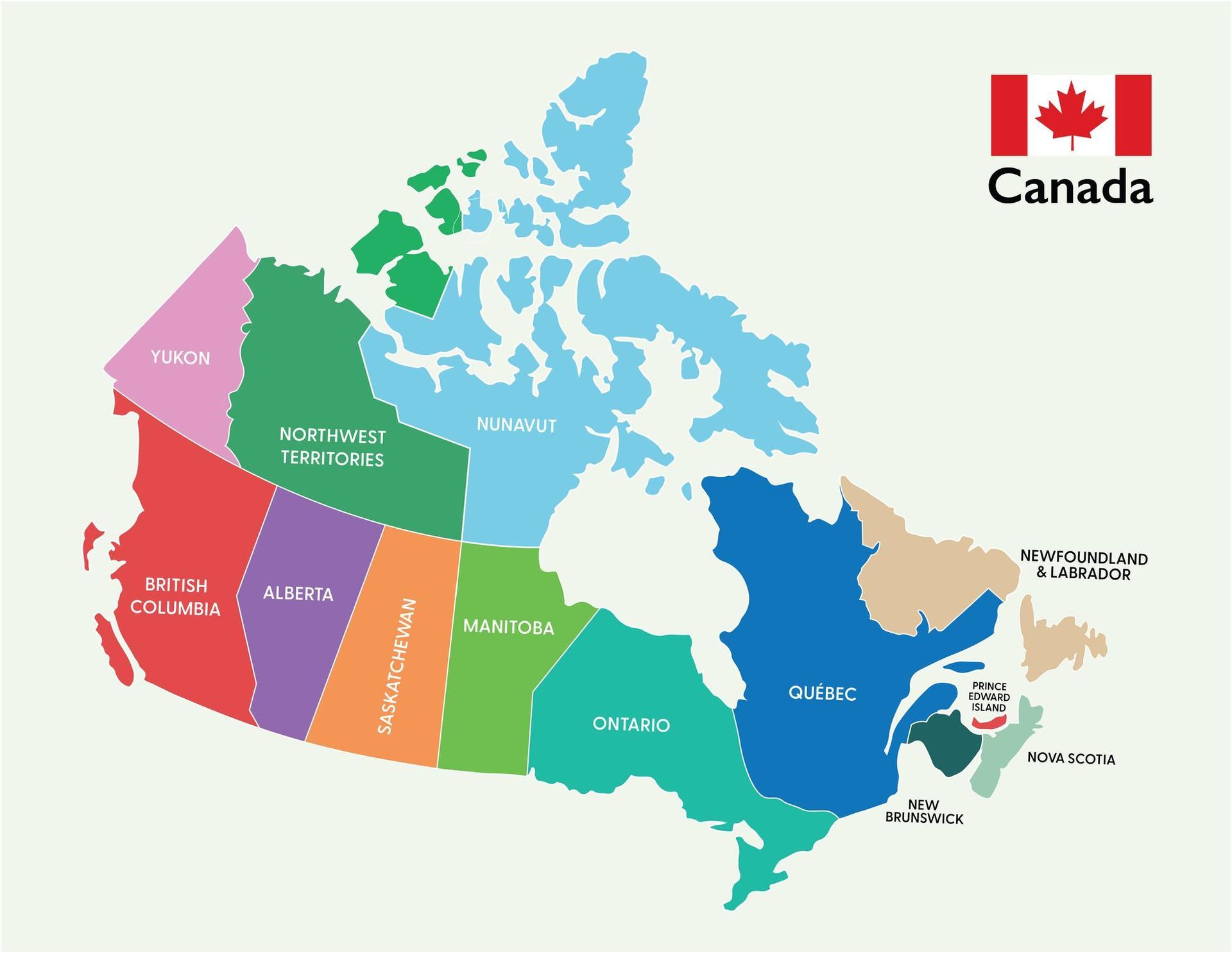A Guide to Medical Registration in Canada for Physicians
If you are interested in practising medicine in Canada, your first step will be to secure eligibility for registration with one of the thirteen Medical Regulatory Authorities which register and licence physicians. This guide provides an overview of the process.
Canada - A popular IMG destination
Canada is a premier destination for international medical graduates (IMGs) attracted to the vast and wintry country by its impressive career opportunities, robust healthcare system and economic benefits afforded by its stable governance.
Whilst securing postgraduate training in residency programmes has now become difficult due to the preponderance of local medical graduates, there are still abundant opportunities for specialists and family physicians, as general practitioners are titled, across the country and particularly in the more remote areas.
Your first step on the journey to Canada, is to secure eligibility for the correct licence to practise as a physician in the position and province where you wish to work. IMGs are eligible for provisional or academic licences initially and after completion of a period of practice, may become eligible for full licences.
Unlike the other anglosphere countries (the United Kingdom, Ireland, Australia and New Zealand), Canada does not have a single medical regulatory authority which covers the entire country. It imitates the USA, having a regulatory authority in every province and physicians must be registered only in the jurisdiction of practice. Full licences can in general be easily transferred from one provincial College to another, permitting medical practice in several provinces.
The College of Physicians and Surgeons of the state or province registers physicians and issues licences to practise whilst the Medical Council of Canada, despite its name, performs assessments of physicians but does not act as a regulator.
Step 1: Select Your Province or Territory
As an initial step, you should decide which provinces or territories would be your priorities for medical practice. Multiple applications for eligibility for a licence to practice are time consuming and costly hence it is advisable to restrict your applications to one or a few Colleges of Physicians and Surgeons.
Factors to be considered in making your selection are the availability of jobs in your speciality, the ease of obtaining a visa and work permit, the lifestyle and the requirements of the College for the province.
Until recently the requirements for medical licence varied considerably across Canada but these have been, to some extent, standardised with many of the regulations now applying to all states and provinces.
The 13 Medical Regulatory Authorities of Canada
Collège des médecins du Québec
College of Physicians & Surgeons of Alberta
College of Physicians and Surgeons of British Columbia
College of Physicians and Surgeons of Manitoba
College of Physicians and Surgeons of New Brunswick
College of Physicians and Surgeons of Newfoundland & Labrador
College of Physicians & Surgeons of Nova Scotia
College of Physicians and Surgeons of Ontario
College of Physicians and Surgeons of Prince Edward Island
College of Physicians and Surgeons of Saskatchewan
Government of Northwest Territories
The Federation of Medical Regulatory Authorities of Canada
The Federation of Medical Regulatory Authorities of Canada (FMRAC) is a voluntary, member-based organization comprising the 13 provincial and territorial medical regulatory authorities. FMRAC is not a regulatory authority. It exists to provide a national structure for the provincial and territorial medical regulatory authorities to present and pursue issues of common concerns and interest.
One of FMRAC’s goals is to respond to matters which relate to licensure and/or regulation, and which are of national and international importance. Historically, FMRAC has worked with its Members to foster common standards and approaches.
The Definitions of Licence Categories used by FMRAC
The precise terminology relating to registration may differ among jurisdictions but most use the definitions listed below.
Canadian Standard The set of academic qualifications that automatically makes an applicant eligible for full licensure in every Canadian province and territory; LMCC, FRCSC/ FRCPC and Canadian citizenship or permanent residency (PR).
Defined scope of practice An indication on an otherwise full license, in the public register or elsewhere, of the specific area of medical practice, based on education, qualifications and experience, in which the physician is licensed to perform. In most cases, a defined scope of practice will not be considered to be a term, limitation, condition or restriction.
Full license A medical license granted to and maintained by a physician who has (a) met the requirements of the Canadian Standard or (b) satisfied the requirements for the passage from a provisional to a full license in a Canadian jurisdiction.
Discipline-appropriate or discipline-specific postgraduate training Training that is acceptable in terms of content and duration to FMRAC and its Members. This term is linked with the name of the particular discipline.
Practice-ready assessment for licensure A comprehensive clinical assessment. Information on this assessment for general practice / family medicine, psychiatry and internal medicine has been developed through the National Assessment Collaboration Practice-ready Assessment (NACPRA) initiative.
Provisional license A medical license for physicians who have not met the requirements for a full license. It is subject to terms, limitations, conditions or restrictions (including, but not limited to, the requirement to successfully complete further examinations, assessments and/or supervision), whether or not this information appears on the public register. A provisional license may or may not be eligible for transition to a full license, depending on the jurisdiction. An otherwise full license with a defined scope of practice is not a provisional license.
Geographic restriction on a license The physician has a provisional license that includes a condition that the physician practise in a specific location within a province or territory.
Academic license The type of license granted to a physician for the purposes of a full-time academic appointment at a Canadian faculty of medicine. Specific elements of an academic license may vary from jurisdiction to jurisdiction. An academic license may or may not be eligible for transition to a full license, depending on the jurisdiction.
Satisfactory practice A period of practice during which no intervention has taken place, either directly by the medical regulatory authority or by another agency (outside of the satisfactory completion of prescribed peer review or quality assurance activities). Such interventions may include, but are not limited to, any action intended to address concerns about the physician’s conduct or competence.
Supervision Oversight, with reporting to the medical regulatory authority, conducted by another physician or physicians in accordance with the approved Expectations of Medical Regulatory Authorities Using Supervision for Provisional Licensure Purposes.
You can peruse the websites of each College to review the requirements listed for specialists and family physicians to register and obtain a licence.
However, before starting the application for licence, there is a further action you must take.
Step 2: Register with Physicians Apply
It is essential to register with PhysiciansApply, the central repository for all Canadian physicians' qualifications and the site from where you can submit your credentials verification applications and book the Medical Council of Canada exams. You can also submit your applications to the provincial and territorial Colleges of Physicians and Surgeons.
Upon registration with PhysiciansApply, you will need to pay a small fee by credit card. You can personalise your account by adding a photograph and on the left hand side, you will see an overview column which allows you to take multiple actions.
Overview of Account
- Messages: messages can be viewed here
- Profile: add personal information here including a photograph headshot
- Documents | Share: upload documents and share them with the Colleges
- Source verification request: request primary source verification of qualifications by ECFMG / EPIC
- Examinations: book Medical Council of Canada (MCC) exams
- Applications for medical registration: Apply to Colleges of Physicians and Surgeons
- Account summary: summary of actions on the account
- Other service requests: Request Educational Credential Assessment (ECA) report, Request a file transfer, Apply for LMCC
- News
- MCC contact information
- MCC practice tests : Purchase Preparatory Products for the MCCQE Part I
- Terms of use
Step 3: English or French Language Proficiency
Canada has two official languages, English and French. French language proficiency is essential to obtain professional registration with the Collège des médecins du Québec. In other provinces and territories, French is not an essential working language and you will need to demonstrate English language proficiency by means of formal testing or gain an exemption.
The FMRAC sets the standard for English proficiency as follows.
English language testing (basic):
Exemptions: Candidates are exempted from English language proficiency testing if:
i. their undergraduate medical education was taken in English in one of the countries that have English as a first and native language (see list below); or
ii. they are currently in practice or in a postgraduate medical education program in a country or jurisdiction where English is a first and native language (see list below) and they met the FMRAC Language Proficiency Testing model standard in order to enter postgraduate training or practice in that country jurisdiction.
Non Exemptions
All other candidates must have taken IELTS academic version within the last 24 months at the time of application, and achieved a minimum score of 7.0 in each of the four components in the same sitting. Note that Canadian Medical Regulatory Authorities do not accept the OET or Pearson tests.
List of countries that have English as a first and native language
Countries: Australia, Bahamas, Bermuda, British Virgin Islands, Canada, Ireland, New Zealand, Singapore, South Africa, United Kingdom, United States of America, US Virgin Islands - Caribbean Islands: Anguilla, Antigua and Barbuda, Barbados, Dominica, Grenada, Grenadines, Jamaica, St. Kitts and Nevis, St. Lucia, St. Vincent, Trinidad and Tobago
Step 4: Primary Source Verification of Credentials
This can be actioned via your physiciansapply account and is performed by the ECFMG's EPIC portfolio. Your medical degree and postgraduate qualifications should be verified.
If you have completed primary source verifications via ECFMG/EPIC for another regulatory authority, you do not need to repeat the verifications and can simply request a report be generated.
Step 5: MCCQE1 Exam
The Medical Council of Canada Qualifying Exam Part 1 (MCCQE1) is now an essential requirement for family physicians and specialists registering with all Canadian medical regulatory authorities. This exam can be taken at prometric testing centres around the world.
In your physiciansapply account, you can book the MCCQE 1 exam and access study resources for preparation. Our guide to the MCCQE1 exam explains the procedure.
The MCCQE Part 2 has been cancelled since the covid19 pandemic and all candidates passing MCCQE1 are entitled to receive the Licentiate of the Medical Council of Canada (LMCC).
Step 6 : Assessment for RCPSC eligibility in primary speciality or for CFPC eligibility in family medicine
You must apply to the Royal College of Physicians and Surgeons of Canada (RCPSC) or the College of Family Physicians of Canada (CFPC) for eligibility for the final exam in your speciality. Their website contains a list of approved qualifications from specific approved jurisdictions. Not all specialities within a jurisdiction are recognised.
If you do not hold an approved qualification, you may be eligible for the Practice Eligibility Route (PER) to licensure. You should apply to the RCPSC or CFPC for assessment.
Step 7: Assessment for Eligibility for a Provisional Licence by a Medical Regulatory Authority
With your MCCQE1 /LMCC certificate, proof of English (or French) language proficiency, EPIC Report and assessment by the RCSPC or CFPC, you are now ready to apply for assessment for eligibility for a provisional licence to practice at your choice of medical regulatory authority.
Pre- Screening
The College will conduct pre-screening by assessing you in seven areas:
- Language proficiency (see above)
- Currency of practice documented evidence of having been in discipline-specific formal training or discipline-specific independent practice within the last three years.
- Length of time away from practice an explanation for any and all periods of three months or more that were spent away from discipline-specific training or practice, for the entire professional life time. You must report any medical condition that could have (a) a risk of harm to patients, (b) a negative impact on practice, or (c) both.
- Good standing / character provide evidence of good character through several processes, for example: self-disclosure(best achieved through the application process), certificates of professional conduct from each and every jurisdiction in which you held a license, letters of reference, criminal record checks and any other information as required by the medical regulatory authority.
- Fitness to practise (physician health) provide evidence of fitness to practise (physician health) through several processes, for example: self-disclosure(best achieved through the application process), certificates of professional conduct from each and every jurisdiction in which you held a license, letters of reference, and any other information as required by the medical regulatory authority.
- Credentials: In recognition of the varying amount of time required for source verification of credentials, the candidate’s application will be considered once all the relevant documents have been received for verification by the Physician Credentials Repository. The medical regulatory authority has the right to reverse its decision if verification is not possible, if adverse information is uncovered, or if the candidate withdraws consent to view the document or documents.
- Medical Council of Canada Examinations: At minimum, the Medical Council of Canada Evaluating Exam; preferably, the MCC Qualifying Examination Part I.
Assessment for Provisional License in General Practice / Family Medicine / Specialist Practice
There are two major routes to provisional licence for family medicine or specialist practice but both start with the same initial requirements
Medical degree [from a medical school that, at the time the candidate completed the program, was listed in the World Directory of Medical Schools (WDMS; see Standard 1.1), or a Doctor of Osteopathic Medicine degree from a school in the United States accredited by the American Osteopathic Association Commission on Osteopathic College Accreditation
MCCQE 1 a pass in this examination (academic appointments are exempt)
Family Medicine
A ruling from the College of Family Physicians of Canada (CFPC) that the candidate is eligible to receive the CCFP designation based on recognized training and certification outside Canada.
OR
Satisfactory completion of a two-year discipline-appropriate postgraduate training program in general practice or family medicine, with certification of satisfactory completion of training and of registration/recognition as a general practitioner/family physician within the jurisdiction; or b) Satisfactory completion of at least one year of discipline-specific post graduate training in general practice or family medicine and three years of disciplinespecific time in independent practice in general practice or family medicine outside of Canada (a list of minimal practice experience requirements has been developed and approved); and A competency-based, pre-practice assessment in Canada (to be defined by the National Assessment Collaboration Practice-ready Assessment initiative)
Specialist Medical Practice
A ruling from the RCPSC that the candidate is eligible to take the RCPSC certification exam based on jurisdiction approved training
OR
Satisfactory completion of at least 4 years of discipline-specific postgraduate training in [insert name of discipline]; and (b) A verifiable document of completion of specialist training in [insert name of discipline] referred to above; or If a verifiable document is not issued or available, then has been recognized as a specialist authorized to practice independently in [insert name of discipline] in the country where the postgraduate training in [insert name of discipline] was completed; and A competency-based, pre-practice assessment in Canada (to be defined by the National Assessment Collaboration Practice-ready Assessment initiative)
Exemptions from the competency -based, pre-practice assessments
In some but not all jurisdictions, these following four categories of applicants may not require a competency-based, pre-practice assessment in Canada before being issued a provisional license:
Category 1 – Certification by the American Board of Medical Specialties
- Medical degree [from a medical school that, at the time the candidate completed the program, was listed in the World Directory of Medical Schools (WDMS; see Standard 1.1), or a Doctor of Osteopathic Medicine degree from a school in the United States accredited by the American Osteopathic Association Commission on Osteopathic College Accreditation and
- MCCEE or MCCQE Part I, or acceptable alternative (e.g., USMLE) and
- Satisfactory completion of discipline-specific postgraduate training in allopathic or osteopathic medicine accredited by the Accreditation Council for Graduate Medical Education or the American Association of Colleges of Osteopathic Medicine in the U.S. Candidates with less than four years of discipline-specific postgraduate training will likely have restrictions / conditions on their license. and
- Current certification by the American Board of Medical Specialties.
Category 2 – Academic License
- Medical degree [from a medical school that, at the time the candidate completed the program, was listed in the World Directory of Medical Schools (WDMS; see Standard 1.1), or a Doctor of Osteopathic Medicine degree from a school in the United States accredited by the American Osteopathic Association Commission on Osteopathic College Accreditation and
- Registration linked with academic appointment. An academic license is the type of license granted to a physician for the purposes of a full-time academic appointment at a Canadian faculty of medicine: a) it may not require the candidate to undergo the Medical Council of Canada Evaluating Exam, the Medical Council of Canada Qualifying Exam Part I, or a pre-licensure assessment; b) it requires that the candidate hold a full-time academic appointment in a medical school in Canada that is accredited by the Committee on Accreditation of Canadian Medical Schools; c) it requires written confirmation of the full-time academic appointment by a letter from the dean of the faculty of medicine, or his / her designate, or the University Senate (or Senate Committee); d) it is permanently linked with the academic appointment; and e) there may be additional requirements set by the medical regulatory authority in each jurisdiction.
Category 3 – Canadian Residency Route before Certification Exam
- Medical degree [from a medical school that, at the time the candidate completed the program, was listed in the World Directory of Medical Schools (WDMS; see Standard 1.1), or a Doctor of Osteopathic Medicine degree FMRAC Model Standards for Medical Registration in Canada Adopted in principle by the FMRAC Board of Directors in February 2016 10/12 from a school in the United States accredited by the American Osteopathic Association Commission on Osteopathic College Accreditation and MCCEE or MCCQE Part I, or acceptable alternative (e.g., USMLE) and
- Completion of a CFPC or RCPSC program, with a successful final in-training evaluation report (FITER) or equivalent, but who has not yet passed and is still eligible to sit the CFPC or RCPSC certification exam.
Category 4 – Canadian Recognition of Training or Certification
- Medical degree [from a medical school that, at the time the candidate completed the program, was listed in the World Directory of Medical Schools (WDMS; see Standard 1.1), or a Doctor of Osteopathic Medicine degree from a school in the United States accredited by the American Osteopathic Association Commission on Osteopathic College Accreditation and
- MCCEE or MCCQE Part I, or acceptable alternative (e.g., USMLE) and
- a graduate of a program outside Canada deemed equivalent by the CFPC or RCPSC, and
- recognition of training o for general practice / family medicine: where the CFPC has ruled that the candidate is eligible to receive the CCFP designation based on recognized certification and training outside Canada or for other medical and surgical specialties: where the RCPSC has ruled that the candidate is eligible to take the certification examination based on jurisdiction approved training.
Time Frame for Registration with a Medical Regulatory Authority
The process to obtain approval for eligibility for a provisional licence to practise as a family physician or specialist varies according to your degree of preparedness and time required to obtain IELTS and MCCQE 1 tests if required. However once you have completed the basic requirements for submission of your application, approval is usually obtained quickly within 6 weeks.
How to Apply for Jobs in Canada
If you are interested in working in Canada please take the following actions
- register your CV and contact us to discuss opportunities.
- Search for advertised jobs on our website.
- Job applications are submitted by uploading a recent CV which should address the eligibility criteria detailed in the job advert.
- Read information and news about working in Canada can be viewed in our Resources section.
11 October 2022
Share this post on Social Media


















